Share
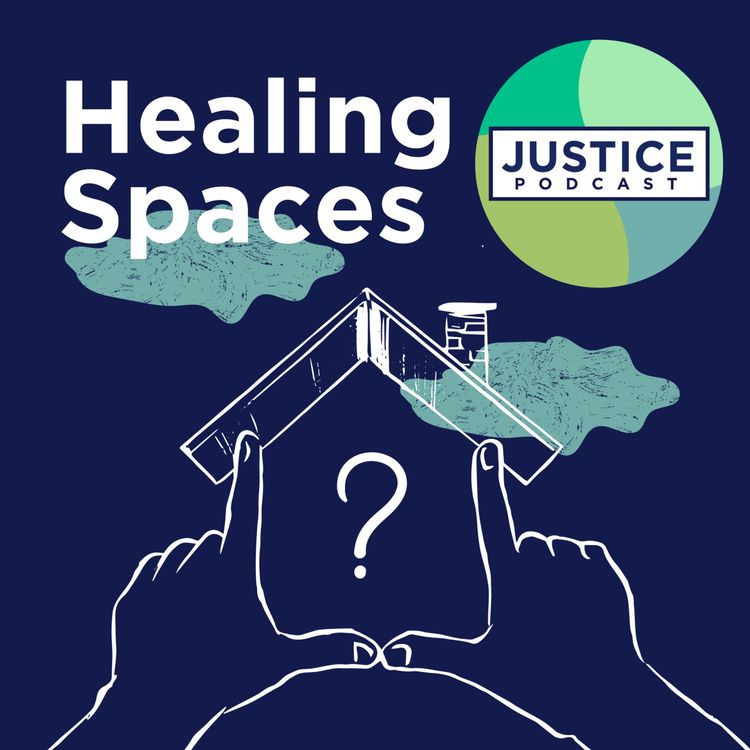
JUSTICE with prison philanthropist Edwina Grosvenor
Healing Spaces?
In the first episode of our Healing Spaces series, we discuss whether healing spaces within the justice system are possible, and if so, what this could look like.
Edwina speaks with Lilly Lewis, One Small Thing’s Women’s Involvement Advisor about her experiences in the justice system and the importance of considering physical space when supporting women’s recovery from trauma.
In this episode we also meet those involved in the design of Hope Street, our pilot residential community for justice-involved women and their children. Dr Madeline Petrillo, Associate professor of Criminology from Greenwich University has been researching the co-production design process we used, and she is joined by Mike Worthington former director of Snug Architects and lead architect on Hope Street. They discuss what they have learnt about designing a space for women affected by the justice system that aims to be trauma informed. We also hear from one of the women involved in the consultation processes for Hope Street, and her impressions of the physical environment when she visited the final building at the opening event this year.
Read more about Hope Street: https://onesmallthing.org.uk/hopestreet
Learn more about Madeline’s work here: https://www.gre.ac.uk/people/rep/las/madeline-petrillo
Learn about Snug Architects: https://www.snugarchitects.co.uk/
Read more about the One Small Thing charity here.
Twitter - @OSTCharity
This podcast is created and produced by The London Podcast Company.
More episodes
View all episodes
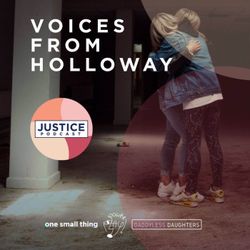
3. Voices from Holloway: Motherhood in the justice system
16:01||Season 6, Ep. 3This is the third episode of a three-part Justice Podcast series in partnership with Daddyless Daughters and Power Play Productions which centres the voices of women from Holloway, including powerful letters that were written and recorded as part of the Layers exhibition. In this episode we hear from women who have been in Holloway and wrote about motherhood as part of the layers exhibition including Kat and Emily. We thank them and all the talented women whose writing we have showcased throughout this series.Hosted by Lilly Lewis, Women’s Involvement Advisor at One Small Thing, each episode includes an introductory discussion with one of the Creative Directors of the Layers exhibition and Founder and CEO of Daddyless Daughters Aliyah Ali. The series is being released alongside the release of the documentary ‘Holloway’ by Power Play Productions in screenings across the country this month, giving a further platform to the many women who wished to share their stories and reflections on Holloway prison and how the justice system should be reformed.To book your tickets for screening near you visit: www.hollowayfilm.comMore information about Daddyless Daughters can be found here: https://www.daddylessdaughters.co.uk/ More information about Power Play Productions can be found here: https://www.powerplayproductions.org/ Twitter - @OSTCharityThis podcast is created and produced by The London Podcast Company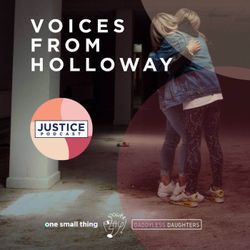
2. Voices from Holloway: Letters to a younger self
12:28||Season 6, Ep. 2This is the second episode of a three-part Justice Podcast series in partnership with Daddyless Daughters and Power Play Productions which centres the voices of women from Holloway, including powerful letters that were written and recorded as part of the Layers exhibition. In this episode we hear from women who wrote letters to their younger self. Looking back from all the knowledge they now have, what advice or thoughts would they share with themselves? We hear from Ashsa, Toyah and Sara who all wrote powerful letter to their younger selves as part of the layers exhibition. We thank them for sharing these incredible insights.Hosted by Lilly Lewis, Women’s Involvement Advisor at One Small Thing, each episode includes an introductory discussion with one of the Creative Directors of the Layers exhibition and Founder and CEO of Daddyless Daughters Aliyah Ali. The series is being released alongside the release of the documentary ‘Holloway’ by Power Play Productions in screenings across the country this month, giving a further platform to the many women who wished to share their stories and reflections on Holloway prison and how the justice system should be reformed.To book your tickets for screening near you visit: www.hollowayfilm.comMore information about Daddyless Daughters can be found here: https://www.daddylessdaughters.co.uk/ More information about Power Play Productions can be found here: https://www.powerplayproductions.org/ Twitter - @OSTCharityThis podcast is created and produced by The London Podcast Company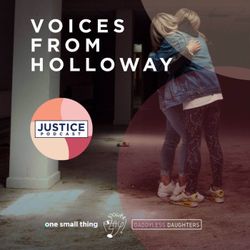
1. Voices from Holloway: Tackling root causes and system reform
17:25||Season 6, Ep. 1This is the first episode of a three-part Justice Podcast series in partnership with Daddyless Daughters and Power Play Productions which centres the voices of women from Holloway, including powerful letters that were written and recorded as part of the Layers exhibition. In this episode we have grouped together letters that women wrote about how the justice system should be reformed. The letters were written by Katy Nuala, Beryl and Lucy.Hosted by Lilly Lewis, Women’s Involvement Advisor at One Small Thing, each episode includes an introductory discussion with one of the Creative Directors of the Layers exhibition and Founder and CEO of Daddyless Daughters Aliyah Ali. The series is being released alongside the release of the documentary ‘Holloway’ by Power Play Productions in screenings across the country this month, giving a further platform to the many women who wished to share their stories and reflections on Holloway prison and how the justice system should be reformed.To book your tickets for screening near you visit: www.hollowayfilm.comMore information about Daddyless Daughters can be found here: https://www.daddylessdaughters.co.uk/ More information about Power Play Productions can be found here: https://www.powerplayproductions.org/ Twitter - @OSTCharityThis podcast is created and produced by The London Podcast Company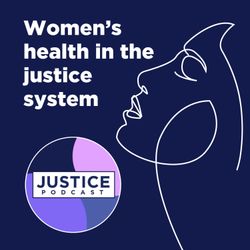
4. Women’s Health in the Justice System: Exploring…maternal health
39:18||Season 5, Ep. 4In this episode we look back to 2023’s Motherhood in the Justice System Series when we explored the issues and challenges mothers in the justice system face, and what needs to change. Maternal health was a key feature in the series including a focus on experiences of pregnancy, birth and the post-natal period. In this episode we bring together the voices of two guests in this series. Dr Laura Abbott is a registered midwife and Associate Professor in Research at The University of Hertfordshire, who has extensively researched women’s experiences of pregnancy in criminal justice settings. We also hear from Dr Miranda Davies who leads prisoner health research at the Nuffield Trust - this body of work is the first time routine hospital data at a national level has been used to describe how often prisoners use hospital services and for what reasons. Please note this episode contains discussion of traumatic births and infant mortality that some listeners may find upsetting. Explore Dr Laura Abbott’s research: https://researchprofiles.herts.ac.uk/en/persons/laura-abbott/projects/ , and the Lost Mothers Project https://lostmothers.org/Find Dr Laura Abbott on X (formerly Twitter) or Bluesky @midwifeteacherRead the Nuffield Trust’s report ‘Inequality on the inside: Using hospital data to understand the key health care issues for women in prison’Twitter - @OSTCharityThis podcast is created and produced by The London Podcast Company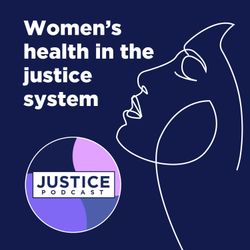
3. Women’s Health in the Justice System: Exploring…the impact of brain injury
39:18||Season 5, Ep. 3In this episode Lilly Lewis, Women’s Involvement Advisor at One Small Thing speaks to Stephanie Bechelet and Thea Arch from Brainkind. Last month Brainkind released a report which found that 80% of women in the criminal justice system in Wales may be living with a brain injury. Alongside this they found the women in the study had complex health needs, frequently reporting histories of domestic abuse, substance misuse, and mental and physical health issues. Lilly speaks to Stephanie and Thea about this important research, as well as their wider work on brain injury for women who have experienced domestic abuse. Please note this episode contains description of abuse and violence and its impact on women’s lives. To read the full report visit: https://brainkind.org/complex-lives/ Find out more about the work of Brainkind: https://brainkind.org/Twitter - @OSTCharityThis podcast is created and produced by The London Podcast Company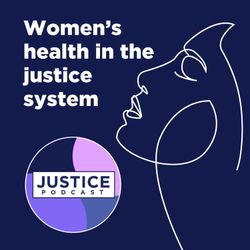
2. Women’s Health in the Justice System: Exploring…Menopause
01:05:56||Season 5, Ep. 2Despite the fact that 51% of the population will experience menopause, and the estimated 13 million people who are currently peri or menopausal in the UK, the topic of menopause has remained taboo. In 2022 I was delighted to speak to two advocates driving change in the national conversation around menopause on their experience of this transition, and what needs to change to ensure more women have access to the support they need – including those in the justice system. I spoke with Davina McCall, renowned TV presenter and household name who has presented documentaries about the menopause and is author of Menopausing, The Positive Roadmap to Your Second Spring which seeks to debunk myths, and break the shameful silence over the menopause. I was also joined by Carolyn Harris, MP for Swansea East who established the all-party parliamentary group (APPG) on menopause and has played a pivotal role in putting menopause on the national agenda. More information:Read the APPG on Menopause Inquiry to assess the impacts of menopause and the case for policy reform: https://menopause-appg.co.uk/inquiry/Read Menopausing, The Positive Roadmap to Your Second Spring, by Davina McCall and Dr. Naomi Potter: https://www.waterstones.com/book/menopausing/davina-mccall/dr-naomi-potter/9780008517786Twitter - @OSTCharityThis podcast is created and produced by The London Podcast Company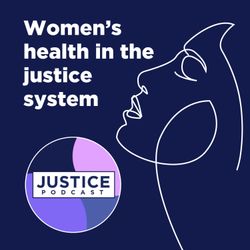
1. Women’s Health in the Justice System: Exploring... Substance Use
56:44||Season 5, Ep. 1In this episode Edwina looks back to 2021 and 2022 when she interviewed representatives from two women’s organisation who provide specific tailored substance use support to women. She spoke with Hannah Shead, CEO of Trevi, the only UK residential rehabilitation centre exclusively for mothers and their children, and Jo-Anne Welsh, former CEO of The Oasis Project which provides women-specific services and a trauma-informed approach to substance misuse treatment. Discussions include the barriers women face accessing appropriate treatment within prison and the community and why services like Trevi and The Oasis Project are so important. To learn more about the work of Trevi visit:https://www.trevi.org.uk Learn more about The Oasis Project: https://www.oasisproject.org.uk/Twitter - @OSTCharityThis podcast is created and produced by The London Podcast Company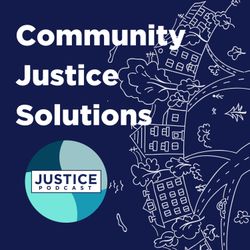
5. What can we learn from diversion schemes for women?
26:40||Season 4, Ep. 5In this episode we explore diversion schemes for women, and what role they play in preventing women from being unnecessarily drawn further into the criminal justice system. Edwina speaks to Pamela Price South London Women's Hubs Manager, and Miranda Dobson Head of Communications from Women in Prison (WIP) to learn more about the diversion scheme they run in South London, linked to their women’s centres. The programme aims to provide early intervention and support for women who have been taken into police custody, addressing underlying issues such as housing, poverty, and substance use. This episode highlights the challenges faced by women in the criminal justice system, including the stigma and shame associated with criminalisation, particularly for mothers, and explores the positive outcomes diversion schemes can have – such as improvements in mental health, relationships, and well-being. Learn more about the work of Women in Prison here: www.womeninprison.org.ukFollow them on X @WIP_live, on Instagram @womeninprisonuk, and on LinkedIn @Women in Prison.Twitter - @OSTCharityThis podcast is created and produced by The London Podcast Company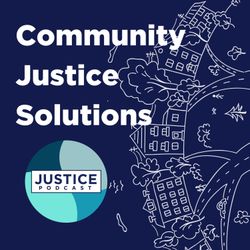
4. Problem Solving Courts with Lilly Lewis, Dr Alexandria Bradley and Dr Sarah Waite
30:12||Season 4, Ep. 4In this episode our Women’s Involvement Advisor Lilly Lewis explores Problem Solving Courts for women with Dr Alexandria Bradley Senior Lecturer in Criminology, and Dr Sarah Waite Senior Lecturer in Law and Criminology from Leeds Beckett University. Alexandria and Sarah are currently evaluating Greater Manchester’s Problem Solving Court for Women, a community justice initiative Lilly also knows well from her work supporting women in the Manchester area. The Problem Solving Court in Greater Manchester is a process in which the woman, the courts, probation services and women’s centres work together to support the woman to adhere to her court order and to achieve positive outcomes for herself. The episode looks at how the approach works and what the evaluation will explore, as well as broader discussions on what a trauma informed community justice system could look like and what support services are needed. Learn more about Greater Manchester’s Problem Solving court in a blog by Fiona Deacon, Strategic Lead for Women for Greater Manchester Probation: https://www.russellwebster.com/the-greater-manchester-problem-solving-court/ Learn more about the work of Dr Alexandria Bradley here: https://www.leedsbeckett.ac.uk/staff/dr-alexandria-bradley/ and find them on X: @DrAlexandriaB Learn more about the work of Dr Sarah Waite here: https://www.leedsbeckett.ac.uk/staff/sarah-waite/ and find them on X: @DrSWaite1Twitter - @OSTCharityThis podcast is created and produced by The London Podcast Company